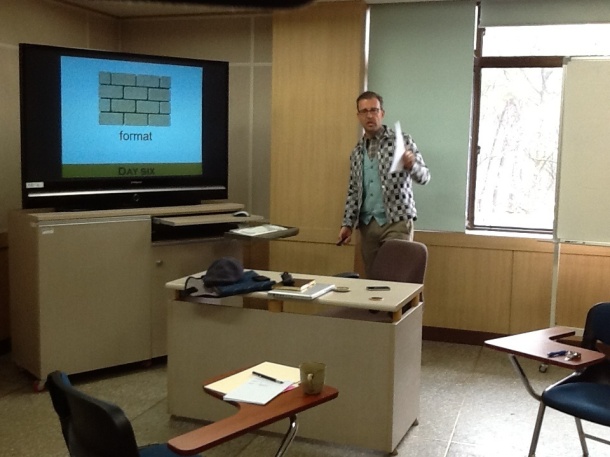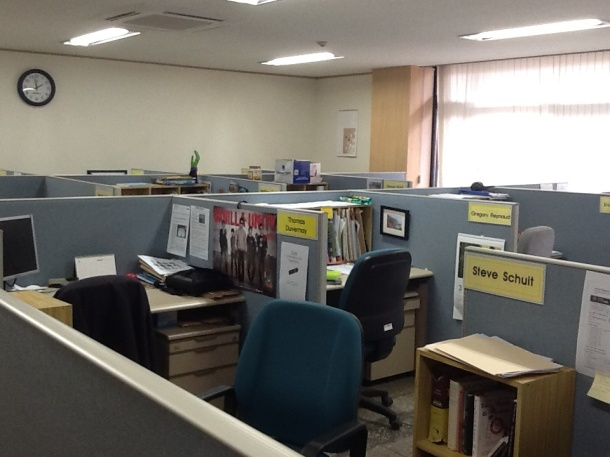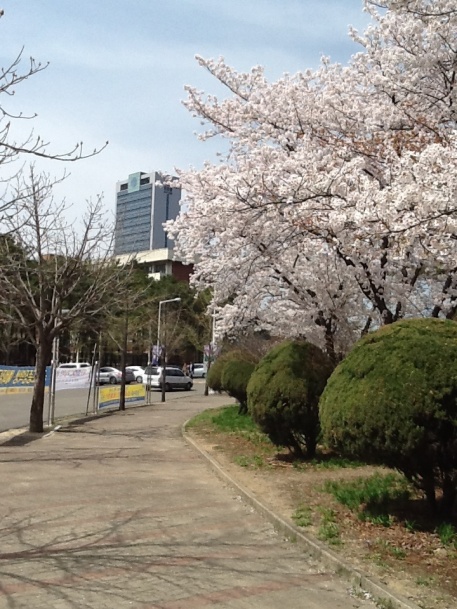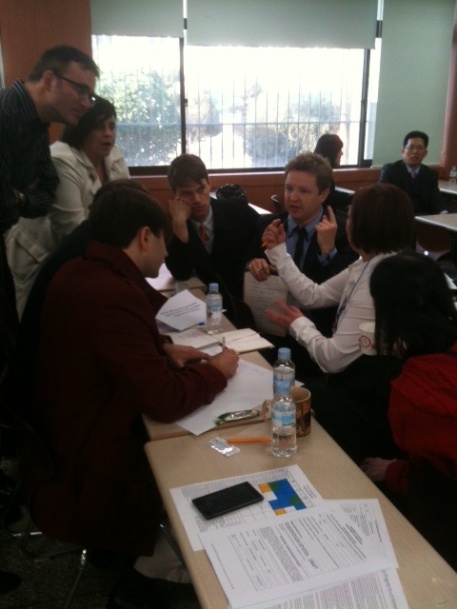“A good command of English is vital to be successful in Korea’s job market”
Lee Byeong Wan, Ph.D., Professor, Economist, and former Director of Yeungnam University’s Foreign Language Institute
There are more than 27,000 native English speakers currently teaching in Korea, helping to fulfill a remarkable national strategy for learning English. The largest contingents are from the U.S., Canada, the UK, Ireland, Australia, New Zealand and South Africa. That figure is even more impressive when you consider that as recently as 2002, there were 10,950 English speakers teaching in Korea—less than half the current number.
 |
| Video screen near Yeungnam University Maine Gate |
English teachers can be found in all types of teaching venues and roles in Korea, with the single largest contingent working at private English Centers known as Hagwons. Many teach at the elementary and secondary levels. Daegu, known as an education center in Korea, has an impressive number of educational institutions. As of 2009 there were 215 elementary schools, 123 middle schools and 91 high schools. There are also more than 20 universities and colleges. Our focus here will be on native English speakers teaching at the many colleges and universities in Daegu.
What attracts English teachers to roles at universities? According to Lee Byeong Wan, professor and economist at Yeungnam University, the leading factors include: the opportunity for professional development, the intellectually stimulating environment, longer vacations, and the multiple perspectives that are included in faculty evaluation systems, such as feedback from students, colleagues and staff.
Successful English teachers at the university-level tend to demonstrate several attributes. Professor Lee found that the characteristics of effective EFL/ESL instructors include: enthusiasm, preparation and patience. My personal experience bears this out. A significant lack of any of these factors can present problems for a native speaking university instructor or professor.
Over the last several decades there is an unmistakable upward trend in the number of native English speakers teaching in Korea. Factors influencing this trend include: the economic conditions in one's home country; personal interest in a new cross-cultural experience and the salary, benefits and work conditions at the Korean work site. The latter, of course, vary from school to school. But university instructors and professors generally find their compensation to be at the higher end of the English educator salary pay continuum. Workloads, while sometimes challenging, tend to be significantly less than those faced by teachers at Hagwons, elementary, middle or high schools. Professors generally have teaching loads of 12-18 hours/week. Instructors usually teach 17 hours/week or more.
Many college-level teachers have master's degrees and even doctorates. However, there are many individuals teaching English at universities who do not have graduate degrees. Yeungnam University, for example, recently eliminated its previous requirement of a master's degree for a professor’s position--this change is said to provide the university greater flexibility in its recruitment efforts. On the flip-side however, many schools require prior university-level teaching experience from their candidates.
As would be expected, compensation varies widely. One recent survey of 30 Korean universities found that starting annual salaries for university level English teachers with a master's degree was between 35,000,000 – 37,000,000 won. For faculty with a bachelor's degree, the starting salary was 26,700,000 won. In terms of housing support, 37% offered a housing allowance or free housing.
If you are considering a university-level English teaching position, a good place to start is to speak with someone who is currently in the role. Networking is an important strategy in any job search, and that goes for teaching English at the university level as well. Use your connections, make contacts through friends and friends of friends, and set up an “informational interview” to learn more about a particular college environment, a school or department’s work and learning climate and what a typical week is like. For example, at Yeungnam University’s Foreign Language Institute, all faculty members are expected to also work several hours a week at the school’s English Help Desk. In addition, staff members have the opportunity to coach students one-on-one through a special program sponsored by the Institute.
University job openings can be found on the various university websites. Popular on-line sites include Dave’s ESL Café and ARJK.
Education continues to be an important contributing factor to Korea’s success. And with more than 20 colleges and universities in the Daegu area, the teaching of English is an important economic stimulant to the area's economy. Make your mark, teach at a Daegu “U.”




No comments:
Post a Comment